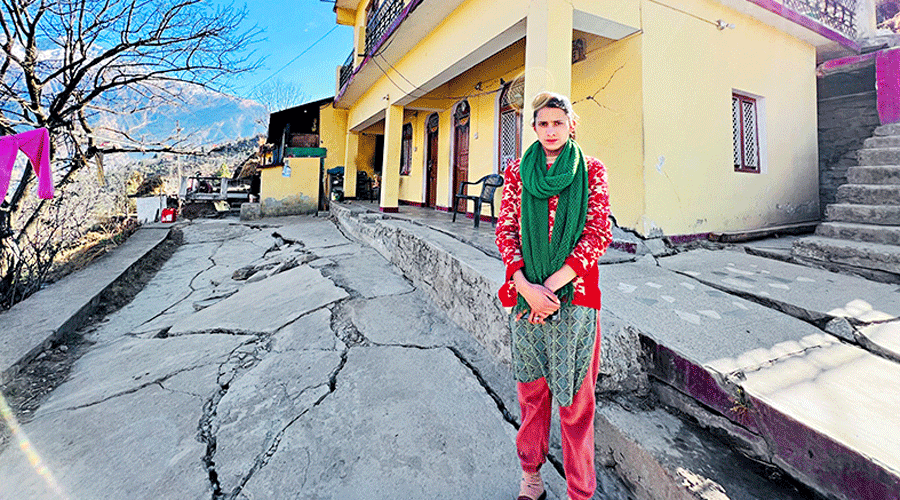Insomnia, anxiety, depression and crippling uncertainty about the future. As days pass into weeks and the cracks in their town widen and deepen, hundreds of people displaced by land subsidence in Joshimath and forced into relief camps are battling a range of mental health problems, say residents and experts.
With no end in sight to the crisis, hundreds of others in Uttarakhand’s fragile mountain town still lucky enough to be at home are frantic with worry about when — not if — they too will have to move into government-run shelters, hotels or just leave town.
“The land subsidence event last month has had an impact on everyone. The major symptoms among affected people are insomnia and anxiety,” Dr Jyotsana Naithwal, a psychiatrist from AIIMS Rishikesh deployed at the community health centre in Joshimath, said.
She is part of a team of three trained psychiatrists and one clinical psychologist deployed in the town of over 20,000 people to help people battle mental trauma.
Naithwal’s own home in Singhdhar area has developed cracks and she has been living in a hotel with her family.
According to Atul Sati, convenor of the Joshimath Bachao Sangharsh Samiti, fewer people are coming forward to report their problems because mental health is still a taboo topic. “We had been warning that an epidemic of mental health is on its way. Many people our volunteers have been in touch with are facing trauma and mental issues,” Sati said.
Being forced to part from their damaged homes and the fear that they may never be able to return to their childhood homes is leading to a spectrum of problems.
Ask 19-year-old Neha Saklani. On February 3, just a month after Neha and her extended family of 14 people shifted to a hotel, her father got an anxious call that their house had been razed.
“All of us rushed to the spot and found it still intact. But the call only compounded the already anxious lives that we have been living ever since our house started developing cracks almost a year ago,” Neha said.
Neha’s mother recently underwent a surgical procedure at a local clinic, and the family doesn’t know how she can recuperate in their cramped hotel room. ”We keep thinking about our house. Imagine the trauma of living in a sinking house for a year. It is horrifying,” she said.
“Initially, I was not able to sleep. Even now I sometimes feel low and anxious. My sister is not in a position to continue her studies. She wanted to join college this year. I guess that will have to wait,” she said.
That businesses have shut down in the town has added to the extreme anxiety about what tomorrow will bring.
Suraj Kapruwan had a laundry shop in Manohar Van, which was heavily damaged during the January 2 subsidence event.
“I am depressed and hardly get any sleep at night. I keep thinking about my business on which I spent lakhs. There is no compensation still in sight. I don’t know how to cope with the situation,” the 38-year-old hotel management graduate said.
Naithwal said: ”We have been doing rounds of the affected areas. If someone exhibits symptoms, a counsellor helps them to cope through relaxation techniques and deep breathing exercises. If somebody has chronic symptoms, they are treated accordingly.”











